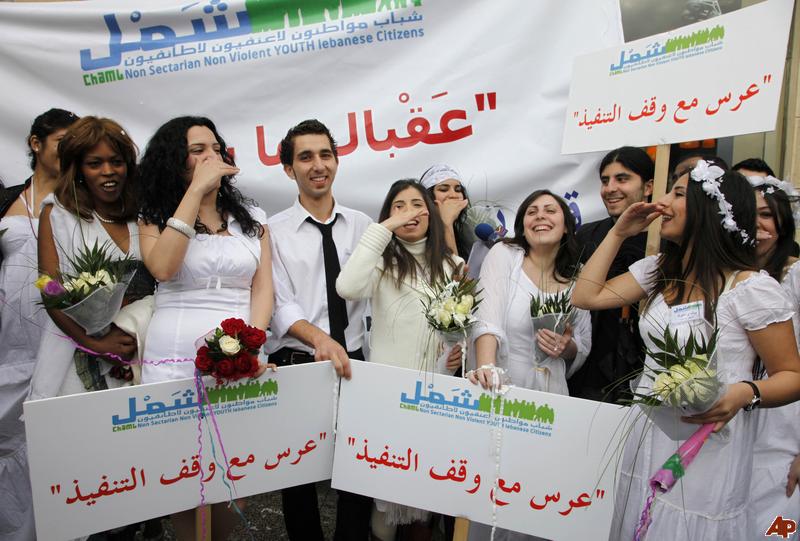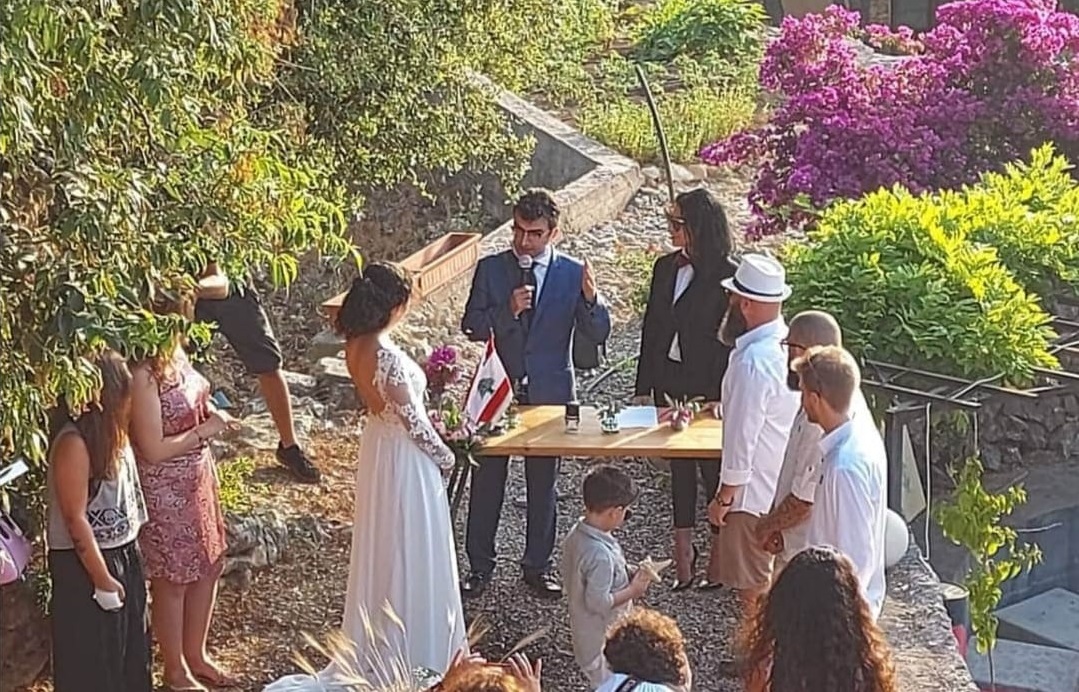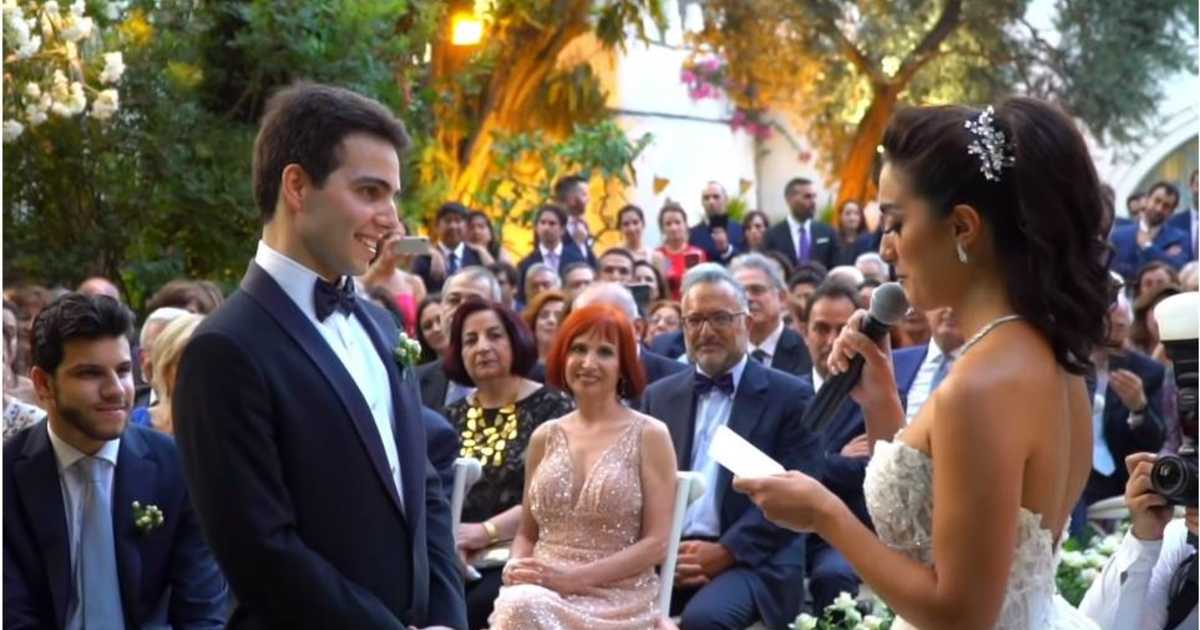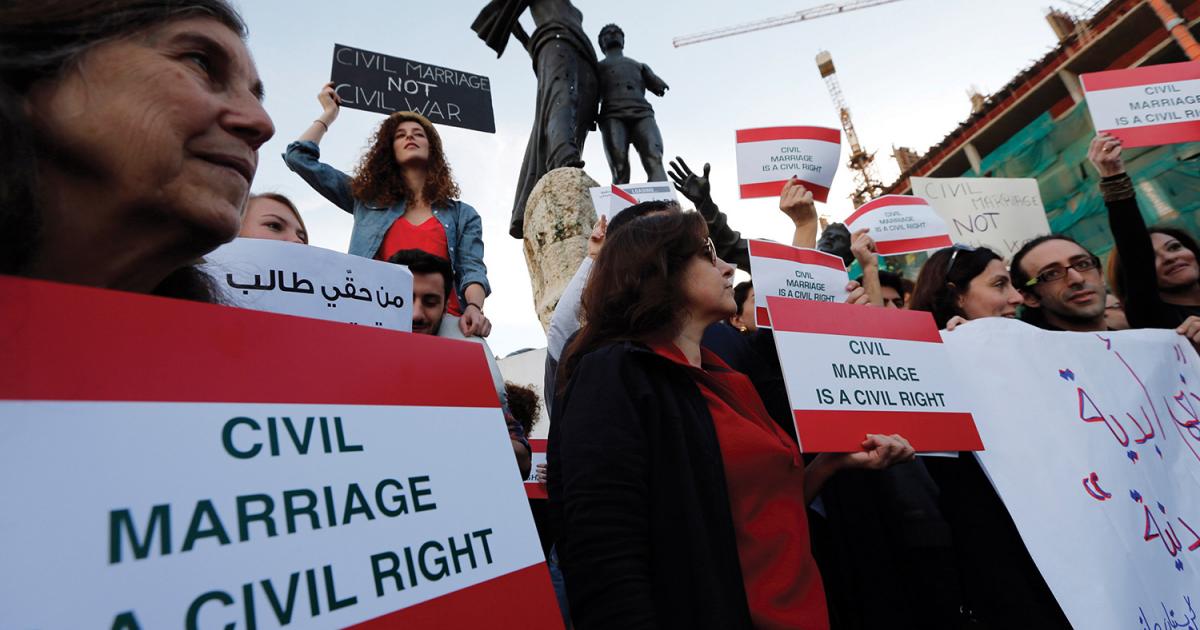Civil marriage is among the most controversial issues in Lebanon, a country with a confessional political system at its core.
The civil marriage debate has been raging in Lebanon since as far back as the early 1950s. It has been proposed and rejected in parliament repeatedly since 1951. Since then, the popular demand for making civil marriage legally possible in the country has been on the rise.
Civil Marriage Explained
Simply put, civil marriage is a marriage recorded and recognized by a government official instead of a cleric. It is a civil contract between two adults that conveys the agreement to establish a marital relationship between them.
Such a marriage is usually completely secular, but it may also be performed by a religious body, as long as it is ultimately recognized by the state. This aspect can also vary depending on the legislation.
In Lebanon, all marriages must be recorded in the husband’s jurisdiction of birth after having been performed by a religious body, which often obligates one of the partners to convert to the faith of the other for the marriage to take place.
Civil Marriage in Lebanon?

Although some people don’t mind converting to their spouse’s religion or sect, this is not always the case.
If the bride and groom both want to keep their different faiths and still get married, they can not do so in Lebanon – at least not in a straightforward manner.
For this reason, many interfaith couples opt to have a civil marriage outside Lebanon, most commonly in Cyprus. Strangely, Lebanon does recognize civil marriages that take place outside its territory despite not allowing such marriages to be held locally.
For those who can’t or don’t want to travel to get married, there is an unusual way to get a state-recognized civil marriage in Lebanon that has succeeded several times before.
This can be done in a process that involves both partners removing the mention of their sect from their personal identification documents (a legal right), which gave rise to the first successful civil marriage in Lebanon back in 2013.
Notably, some people, who oppose the practice, claim that manipulating identification papers to remove the mention of one’s sect entails that the individual has abandoned his or her faith. That is far from the truth.
The approach also faced resistance from religious authorities after its success, Marwan Charbel, the Interior Minister in 2013, told the Lebanon-based NGO Kafa. Marwan Charel was the first to approve a civil marriage in Lebanon.
In Cases Of Dispute
Civil marriage is legally treated as a civil contract. Hence, in cases of divorce, heritage, family affairs, custody, or other developments that require legal action in an active civil marriage, matters are settled in civil court, instead of religious sects’ courts.
Nonetheless, it is also possible for a couple of the same sect, who had chosen to have a civil marriage, to refer to the religious court of their sect to settle their issues in the conventional, religious way.
Why Civil Marriage?

In addition to the aforementioned religious conversion dilemma, there are several reasons why a couple would want a civil marriage rather than a traditional, religious one.
These include cases in which:
- Neither person is religious nor wants a religious ceremony for their marriage.
- The couple wants to have a non-traditional ceremony with certain aspects that the concerned religious body may not approve of.
- The couple wants to hold the marriage ceremony in a special location that is not a house of worship, which might not gain the approval of the concerned religious body.
- The couple does not wish to be restricted by the vows and ceremony of the traditional religious wedding.
It’s important to reiterate that civil marriage legislations are flexible and vary from country to country. In some nations, all marriages are legally required to be recorded by the state, separately from any religious ceremonies.
These include France, Germany, Japan, and others. In such cases, a religious ceremony may take place after the legal binding, if the couple wishes to have one.

On the other hand, civil marriage can still be interwoven with religious ceremonies.
For instance, in the United States, clergy members are legally authorized to perform marriages, as are officials such as mayors, judges, and others, all of whom can legally conduct civil wedding ceremonies.
In this case, couples who belong to the same sect can still have a traditional religious wedding if they wish to do so, while those who prefer to have a civil marriage are also granted that right in their homeland – without having to fly to another country just to be able to marry.
Update, June 24th, 2021: Lebanese Civil Marriage Couple Receives Official Letter Supporting Their Case.
